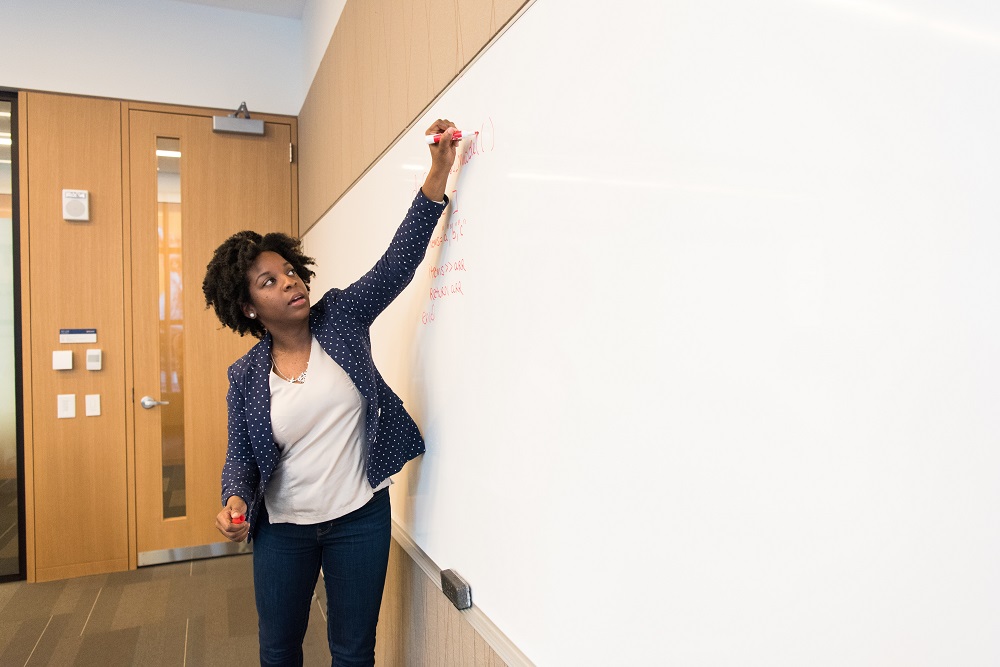One of the primary drivers of the student debt crisis is the inability of many college graduates to find jobs that either relate to their field of study, or because their majors did not prepare them for a life of work.
In today’s digital world, it’s no longer a question of whether or not to follow your dreams: opportunities to monetize your passions are available anywhere you go. However, the combination of competition and a lack of practical skills has been holding back thousands of graduates and creating a crisis of employment. Many feel let-down by an educational system that has ill-prepared them for the rigors of adult life.
To get around this, many graduates go for post-graduate courses, if not to gain more knowledge, then to stave off the inevitable. However, many are disappointed to find that real-life skills are still lacking in the post-grad system, and their continued education means racking up more debt.
Bridging the Gap
A lot of students, rightfully fearing that the real world will offer challenges that school hasn’t prepared them for, take on internships or workshops in a proactive move to self-prepare. But many of these interns are either unpaid or underpaid, and worst of all, their school doesn’t offer much in terms of support other than imposing compulsory attendance, which is not the greatest motivator nor teaching tool.
Despite the changes of the world around us, many schools are still lagging behind: instead of offering courses or classes that teach people what they want, they still rely on old, outdated systems of teaching. Many students are still barred from choosing the classes that they truly want and crafting a customized curriculum that fits both their passion and their need to learn valuable skills. It is disconcerting that, in the 21st century, schools still dictate what students are supposed to learn, regardless of their personal preferences, the skills they need for their future profession, or their passions.

As educators, we need to bridge that gap and (re)create the educational system in such a way that it scales to individual students and their learning styles, their dreams, and their necessities. This doesn’t just apply to college students; from kindergarten onwards, we’re taught to think in binary oppositions, being made to choose between only 1 of 2 things (do you want to be a doctor or an engineer? Are you good at sports or are you good at academics?). Taking this kind of thinking out of our educational system is the first step in advancing our society one individual at a time.
Memorization is great and all, but its real world applications are lacking: when was the last time a rote memorization of algebraic formulas saved us from an actual problem that required algebra (say, calculating grocery expenses or figuring out loan repayments)? Let me be clear: algebra and other mathematic disciplines are essential, but it needs to be taught in such a way that it prepares students for the real world.
Changing the Way we Teach
Learning theory is a great step towards creating a holistic person, but it’s only the first step. Unfortunately, many schools stop here. What we need to teach aside from theory is practice. Applying theory into real-life problems is an ideal that our current system cannot reach, mostly because it’s busy regimenting students into a one-size-fits-all grading system.
While it’s good that students are taught the basics of poetry along with trigonometry, teaching the advanced concepts of these disciplines to someone who doesn’t require it (perhaps an athlete or an aspiring painter) and then holding them accountable if they fail, is not only damaging to their ego, it also creates a system that punishes people for pursuing their passion.
Education should not be a factory: we cannot be complicit in the creation of future employees whose only purpose in life is to serve the corporate machinery. This isn’t just some lofty, enlightened ideal either, it’s a mindset that could have profound effects on our economy at large.
We’re seeing this already: many millennials are choosing to forego traditional jobs and distancing themselves from entire industries simply because they’ve learned how to adapt and learn the skills they want on their own. In effect, this has given them the ill-fitting “industry killer” moniker. In reality, however, they’re not the ones killing industries: industries are failing because they can’t cope with the change.
If there’s anything millennials should teach us is that each individual learns things in their own unique way, and designing a system that caters only to perpetuate corporate interests is intrinsically flawed, and will, in fact, run counter to what they want.
How to Course Correct
A complete change in mindset is needed in order to correct our educational system and ultimately create a society that is productive, happy, and advancing itself towards a higher form of knowledge. To do this, we need to address key issues:
- The individuality of students
- Their unique needs and passions
- Proper training in their chosen field
- Placing value on their mental and emotional health

Taking into account the individuality of students means catering to their specific learning styles and adapting to their needs. This isn’t baby-ing: it’s ensuring that every individual receives an education that they can understand and retain.
Once we accomplish this and we reignite a love for learning, then we need to address their unique dreams. Figure out what each student wants and encourage it, rather than telling them it’s impossible. We aren’t just educators, we are enablers of passion.
When we determine what it is that drives our students, then we delve into their training. As I mentioned earlier, learning things that are incidental to their main passion does more good than harm, but continuing to teach them those things even when it’s unnecessary is detrimental in the long run. We must train our students in what they want to learn. Offer them a chance to become experts in their field, rather than holding them back by requiring them to attend classes they no longer need.
And finally, we need to talk about their mental health. Too many schools across the country don’t take into account the psychological and emotional burden we place on our kids. We can’t treat them like children then expect them to act like adults. On the contrary, we need to allow them their youth, and be there to guide them into thinking for themselves. Especially for teenagers, when their hormones are in full swing, educators need to be more sensitive and address not just their academic issues, but their emotional issues as well.
Transforming the educational system should be our ultimate goal. We need to stop creating employees and start creating leaders, innovators, creators, and visionaries.

